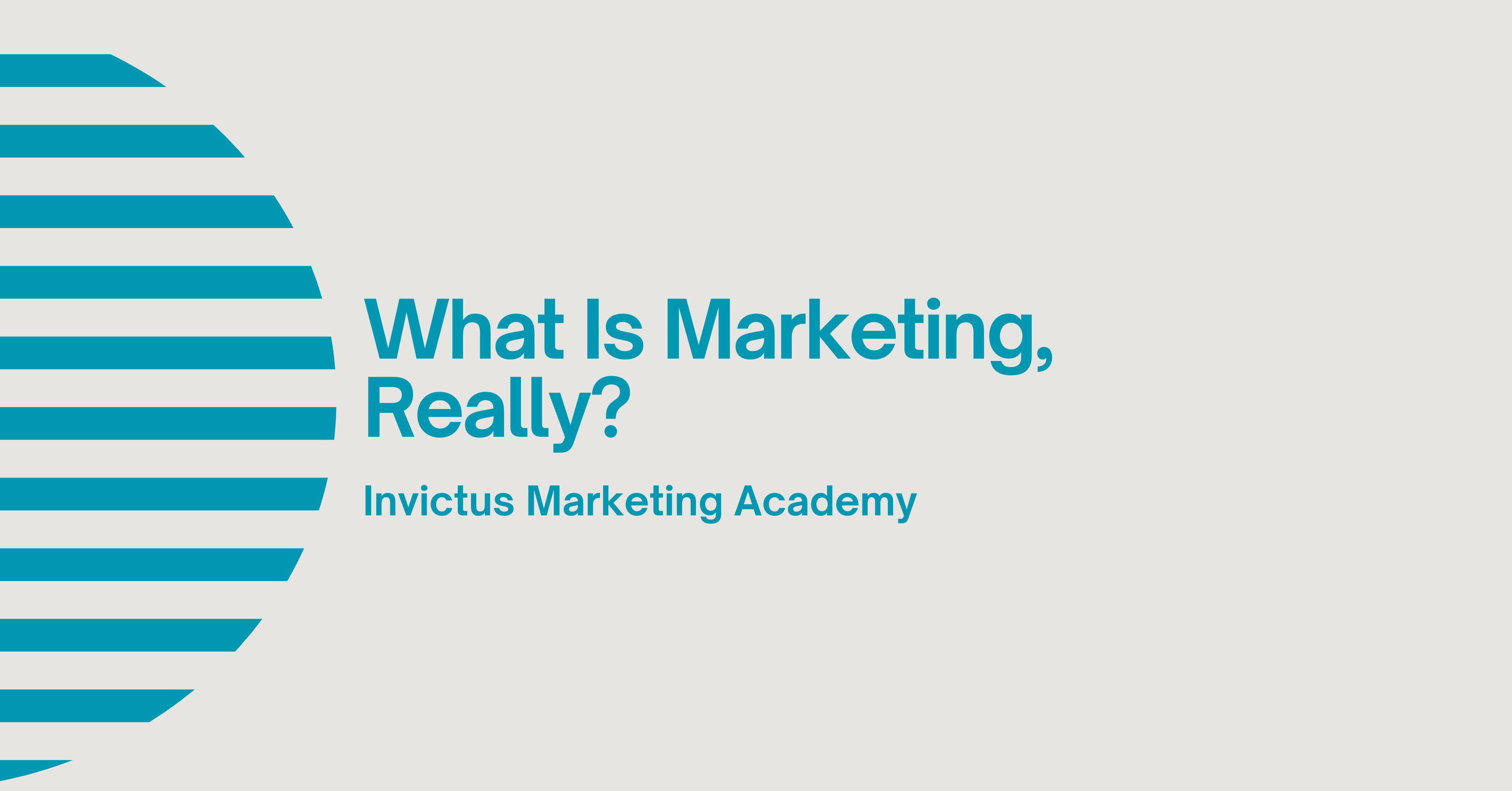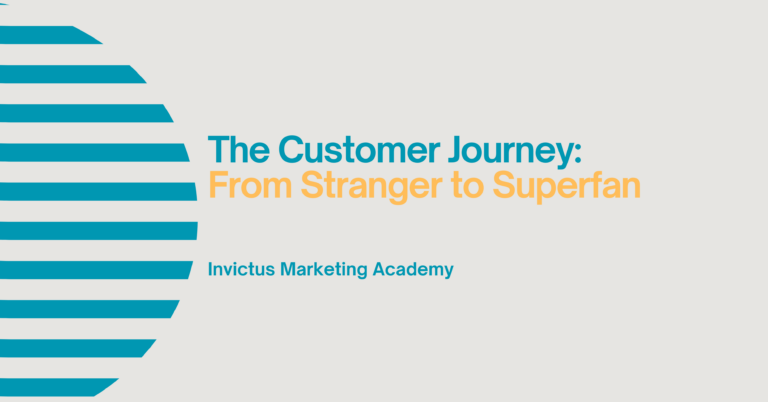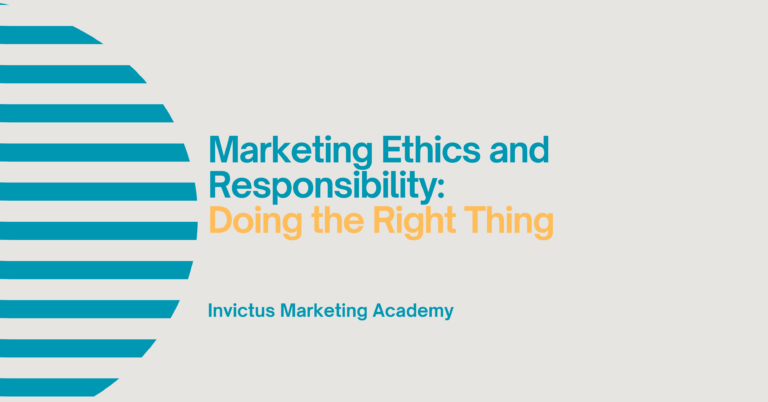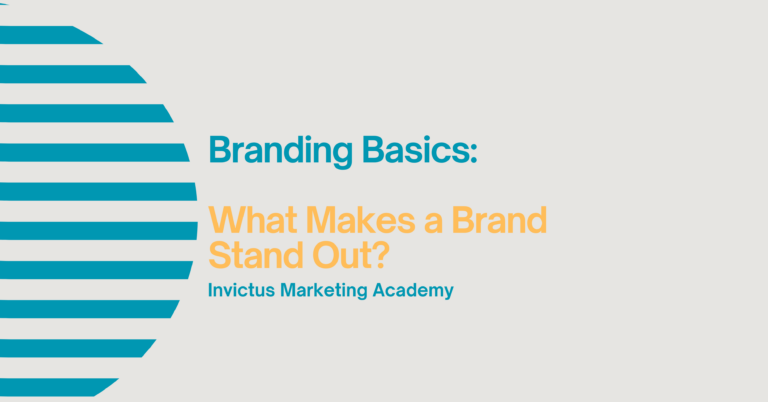What Is Marketing, Really?
Ask around and you’ll quickly find that marketing is one of the most misunderstood areas in business. For some, it’s all about advertising. Others think it’s to do with branding, websites, or social media. And yes, those are all important parts of marketing — but they’re just the tip of the iceberg.
Marketing is not just a function, or a series of one-off activities. It’s a mindset, a process, and a way of doing business that centres around people — your customers. Whether you’re working in a start-up, a multinational corporation, or running your own freelance practice, marketing is what helps connect what you offer to the people who need it. But more importantly, it helps you do that in a meaningful, sustainable and profitable way.
A Proper Definition
Let’s begin with a professional definition, courtesy of the Chartered Institute of Marketing (CIM):
“Marketing is the management process responsible for identifying, anticipating and satisfying customer requirements profitably.”
Each word in that sentence is doing some serious heavy lifting:
- Management process – Marketing isn’t guesswork; it’s structured, measured, and planned.
- Identifying – You need to actively understand who your customers are and what matters to them.
- Anticipating – It’s not just about the now. Good marketing looks ahead, predicting future wants and behaviours.
- Satisfying – Delivering real value that meets or exceeds expectations.
- Profitably – It has to work for your bottom line, not just your brand reputation.
It’s a definition worth remembering. At its heart, marketing is about creating a bridge between what people need and what your organisation can provide — in a way that makes commercial sense.
Beyond the Stereotypes: What Marketing Is Not
Marketing often gets reduced to the ‘fun stuff’ — logos, adverts, taglines, social media trends. And while those are useful tools, they’re not the full picture. Marketing is not just:
- Making things look appealing
- Running discounts or promotions
- Creating a buzz on social media
- Pushing sales in a seasonal campaign
Those are tactics. Good marketing is strategic. It starts with understanding the customer and ends with solving their problems in a way that builds long-term trust and value.
The Real Scope of Marketing
To understand the true scope of marketing, you need to think about the entire journey a customer takes — and every point where your organisation interacts with them.
Marketing is involved in:
- Market research – Understanding the landscape and what customers really want.
- Segmentation – Identifying different customer groups and their behaviours.
- Targeting – Choosing which group(s) to serve, and how best to reach them.
- Positioning – Making sure your offer stands out in a crowded marketplace.
- Product and service development – Creating something that fits what your audience values.
- Pricing – Setting a price that reflects value and matches expectations.
- Place – Deciding how and where your products or services will be made available.
- Promotion – Communicating the right message, at the right time, using the right channels.
- Customer experience – Ensuring every interaction reinforces your value and builds trust.
If that sounds like a lot — it is. But that’s also what makes marketing such a dynamic and rewarding discipline. It’s not about being clever; it’s about being connected.
Marketing Strategy vs Marketing Tactics
A critical distinction to make early on is between strategy and tactics.
- Strategy is the big-picture thinking. It asks: Where are we going? Who are we serving? What value do we offer?
- Tactics are the actions that help implement that strategy — like posting on social media, launching a campaign, or updating a website.
Jumping straight into tactics without a clear strategy is one of the most common mistakes businesses make. It’s like setting sail without a map. You might move fast, but not necessarily in the right direction.
Marketing as a Driver of Business
Marketing is not just a support function; it’s a core driver of business success. It influences every part of the organisation:
- Product teams rely on marketing to provide insights from customer research.
- Sales teams use marketing assets to engage and convert leads.
- Finance teams use marketing forecasts and campaign ROI to inform budgets.
- Leadership teams use marketing strategies to position the brand for growth.
In short, marketing isn’t a department. It’s a fundamental part of how organisations create, communicate and deliver value.
Ethics, Responsibility, and Trust
Today’s marketing environment also demands integrity. Customers are better informed, more values-driven, and less tolerant of manipulation or vague promises.
Ethical marketing means:
- Telling the truth — even when it’s inconvenient
- Respecting data privacy and customer consent
- Considering environmental and social impact
- Making your business inclusive and accessible
Shortcuts may deliver quick wins, but long-term success comes from building trust. And trust is hard won — and easily lost.
A Simple Example
Let’s bring this to life with a relatable example.
Imagine you’re opening a new coffee shop. You could just put a sign outside and hope for the best. Or, you could:
- Research what kinds of coffee your target market enjoys.
- Find a location near offices with lots of foot traffic.
- Design a brand that’s memorable and warm.
- Create a pricing strategy that feels fair but still profitable.
- Promote your launch on local social media and in nearby businesses.
- Offer excellent service and gather feedback to improve.
Every single one of those steps is marketing. That’s why even the best coffee in town won’t sell itself without it.
In Summary
Marketing is much more than flashy campaigns or catchy slogans. It’s a strategic process that runs through every part of a business — from research and product design to pricing, communication and customer service. At its best, marketing helps customers find the right solution, builds lasting relationships, and drives real business growth.
If you take nothing else from this article, remember this: marketing is about creating value — for your customer and for your business. Everything else flows from there.






